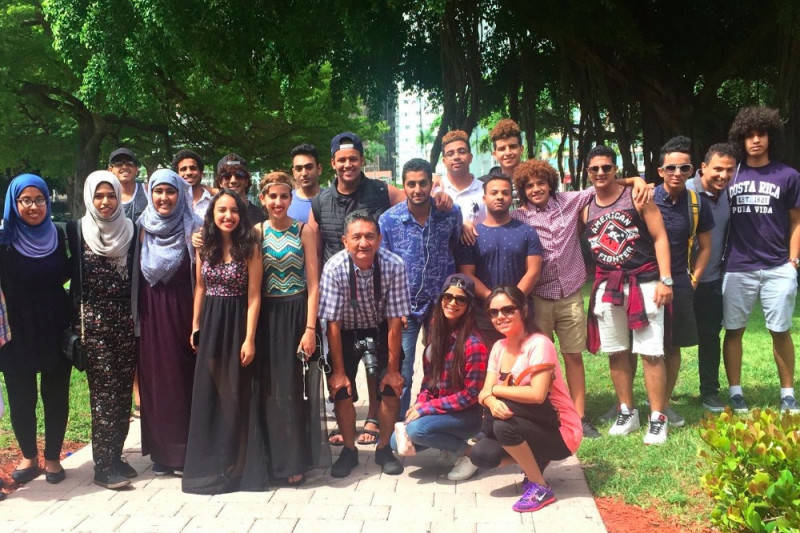He said it is a daunting waiting game.
A dozen Yemeni students attending Edmonds Community College are trying to piece together a future in the United States that is still “in the clouds,” said Yunes Alhobane, 18.
Come June 23, their visas expire and the money they’ve been living on dries up.
In 2014, the group was chosen from hundreds of Yemeni students for the Kennedy-Lugar Youth Exchange and Study program, promising a year in an American high school. The U.S. Department of State and the Bureau of Educational and Cultural Affairs launched the program after Sept. 11. The scholarships are awarded to students from countries with large Muslim populations.
It’s a chance for students worldwide to learn about different cultures.
A few months after the group’s arrival in the states, violence erupted in Yemen. The State Department extended the students’ stay while they waited out the war. It has been almost three years.
The State Department recently notified students that their program will not continue past June. Young men and women are facing a decision between finding a way to continue their lives in the U.S. or returning home to a war.
“We can’t go home,” Alhobane said. He has lost a cousin and a friend to the violence. His father and brother also have been hurt.
The news came at a time when U.S. President Donald Trump was trying to heighten immigration restrictions. In January, Trump issued an executive order banning people from seven Muslim-majority countries from entering the U.S. Yemen was on the list. A federal judge from Washington state blocked the order in February.
By early March, Trump introduced a revised order. Federal judges from Maryland and Hawaii issued injunctions this week.
Alhobane grew up in Aden, a town overlooking the ocean. The seaport can be seen from his house. Alhobane remembers homes packed tightly together and friends running into each other on the street. After school, he and his classmates would play soccer until they had to go home for dinner.
Since he left, his neighborhood has been burned down, he said.
He applied for the exchange program twice, and was accepted on the second try.
“When I was home, it was exciting. I had an opportunity for a better future,” he said.
During his first two years in the U.S., he lived in North Carolina, Virginia and Indiana. Alhobane traveled west to Edmonds Community College in Lynnwood when he turned 18. He was one of 12 Yemeni exchange students to enroll.
With their own relatives miles away, the students have become family.
“We have no boundaries,” Alhobane said. “We eat together. We do everything together.”
On nice days, a few of them toss a football in the parking lot outside their dorm. Alhobane said he knows more about his classmates than his own brothers back in Aden.
“We’re trying to stay together, but that may not be possible,” he said. “I’m trying to prepare myself, but I can’t.”
The program’s rules prohibit students from working while in school, Alhobane said. Instead, the government sends a monthly stipend for books, food and living expenses. Tuition and housing costs are covered by the program. The students haven’t been able to save money to support themselves after the end of the school year.
There is “a big possibility we’ll be homeless. The basics aren’t there,” Alhobane said.
He said his concerns have crept into his daily life.
“Everyone expects us to do well in school, but we have these other worries. It’s too much,” he said.
Students reached out to the Northwest Immigrant Rights Project, hoping for an attorney’s help seeking asylum. Their requests were denied, Alhobane said. He has applied for temporary protective status, but has not heard back.
A former adviser at Edmonds Community College started a GoFundme for the students. The goal is to raise $48,000 by June. If they meet the goal, each student will have $2,000 to put a deposit down on an apartment, buy groceries or pay fees for a driver’s license test. Some hope to hire an immigration lawyer.
So far, more than $31,000 has been donated. There are another dozen Yemeni students facing the same problems elsewhere in the U.S.
Alhobane would like to stay here. He has plans to graduate from college with a business degree. He’s interested in investing, as well as football analysis.
“I love this country to death,” he said. “I can see myself living here.”
Caitlin Tompkins: 425-339-3192; ctompkins@heraldnet.com




